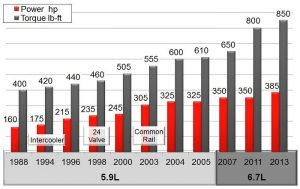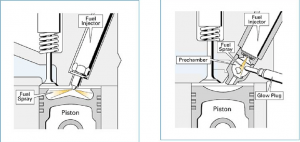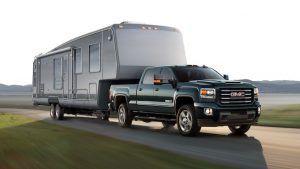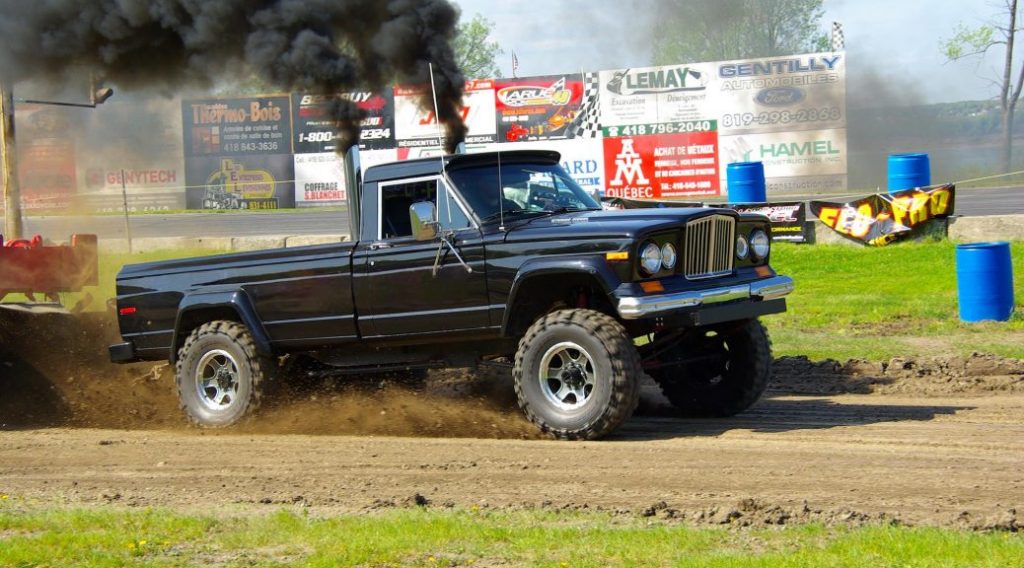DIESEL VS. GAS ENGINE COMPARISON
This time, we’re going to take a look at the pros and cons of diesel vs. gas engines, basic maintenance, and some myths.

One significant advantage of a diesel engine is torque. It’s not for nothing that most heavy vehicles and machinery are either electric, diesel, or a mix of the two, such as trains (a diesel engine runs a generator that supplies electric motors). Another important difference is fuel economy. Yes, diesel fuel is sometimes more expensive than regular gas. And yes, the fuel consumption of a pickup that is not loaded is barely better than a gas one. However, that’s a different story when it is put to work.
The diesel engine is designed to work. It’s much tougher than a comparable gas engine, but there is a drawback. For a long and healthy life, a diesel must warm up and carry loads. There is no better example than heavy trucks. They can drive several hundred thousand kilometres before needing an engine rebuild (the previous owner of my Peterbilt blew up the engine at 1.7 million kilometres). For those currently driving a diesel with a pyrometer (exhaust temperature gauge), it is as low as possible for fuel economy, while the ideal for the engine is approximately 800 F.

People who buy a diesel to look cool and go around the corner will likely have problems with their vehicle in the medium term. The cylinders will glaze (become chrome, and compression will leak). Those with EGR, DPF, or urea systems will get a lighted Christmas tree on the dashboard…
Why were the old diesels hard to start while new ones almost start like gas engines? First, the compression ratio. The old GM’s 6.2L/6.5L, Ford’s 6.9L, the first Ford’s 7.3L, and the VW TDs are all indirect injection (IDI) engines, which means that the injector sends fuel to a prechamber and not directly to the piston. As a result, these old engines had very high compression ratios, between 20 and 22:1, and the injection pressure was on average between 4 and 8000 psi.

Newer common rail diesel engines have compression ratios between 14 and 17:1, making it much easier on the starter, and injection pressure between 28 and 35 000 psi injected directly to the piston. And for those lucky engines, synthetic oil helps a lot with cold starts, which was not popular in the 1980s.
A question that comes up often, I have the choice between two pickups, say a 2018 Silverado 2500HD 4-door 4WD with the same equipment. The 6.0L gasoline engine is $60 000, but it is $72 000 with the Duramax (on GM’s website). I don’t work with it; I just pull my caravan in the summer. Which one should I take? If you intend to keep the pickup and forget the resale value, unless you cross Canada regularly to go camping, the gasoline truck is the logical choice. Why? Like I’ve said, a diesel is made to work hard. If it doesn’t have any loads three seasons out of four, it won’t be happy. In the summer, if you pull your caravan, for example, eight times and drive 600 km round-trip each time, it makes about 5000 km per summer. We are going to make sales figures… The diesel pickup consumes 15 L/100 km at $1.35/L, so it costs $20.75 for 100 km and $1012 for the 5000 km of camping. The gas pickup consumes 25 L/100 km at $1.35/L, so it costs $33.75 for 100 km and $1687 for the same 5000 km. You save about $675 per year. Sounds cool, but you paid $12 000 more when you purchased your truck. That means if you do 5000 km of camping per year, it will take you almost 18 years to start making money on your $12 000. Every time I say that I kind of feel like I’ve burst people’s bubble. Of course, the numbers vary, oil prices fluctuate, dealers sometimes have deals on specific models, but basically, you understand the idea: to make your diesel truck cost-effective, you have to work with it.

On the maintenance side, some say a diesel engine requires more maintenance than a gas one… Apart from the fuel filter once a year (ideally in the fall to have a clean filter without water before winter), the rest is the same. Keep the air filter clean and change the oil. True, it costs more. It’s not more maintenance, but it’s more expensive because it takes on average 10 to 15 liters of oil for a pickup, and some models have more expensive filters. Besides that, there is nothing more to do.
Some myths… A diesel engine doesn’t start in winter; it just makes black smoke, and it’s not efficient. If we go back to the 1980s and early 1990s, it was pretty much like that. But as I’ve said, engines have been improved a lot since. A modern diesel engine in good order can easily start at -20 without a problem. Stock diesels with an emission control system (so no smoke) are offered with almost 400 horsepower and some exceed 900 pound-feet of torque.
In the next article: programmers, gains, breakages, manufacturer’s guarantees, the legal side…
Francois Vézina chroniqueur 4x4setup magazine

